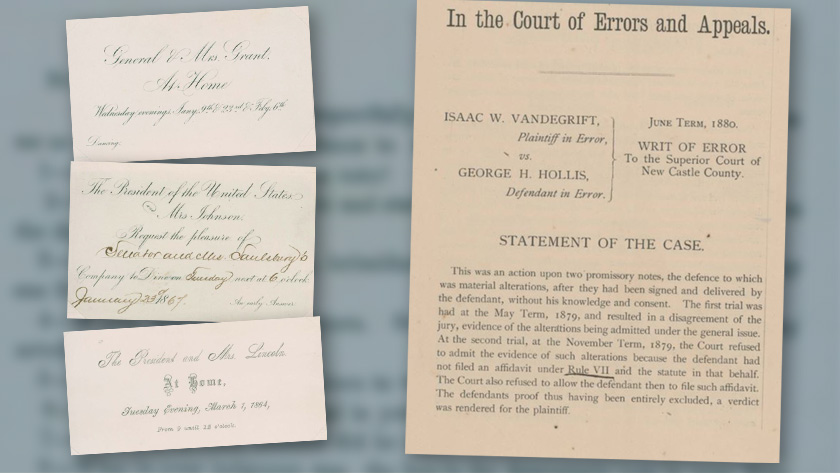
High Stakes in the Senate: Two Generations of Saulsburys (Part 1)
By David Cardillo, Digital Initiatives and Preservation
Following the Civil War, Willard Saulsbury, Sr. served as Delaware senator in the U.S. Senate from 1858 until 1870 (defeated, interestingly, by his brother, Eli Saulsbury). His son, Willard Saulsbury, Jr., also served as Senator from 1913 to 1919. Papers and ephemera for all three of the mentioned individuals can be found in the Willard Saulsbury, Jr. collection.
Willard Saulsbury Sr. served in the U.S. Senate under three different presidents: Abraham Lincoln, Andrew Johnson and Ulysses Grant. Below are three invitation cards from three different U.S. Presidents via the General collection in the Willard Saulsbury, Sr. sub-collection.
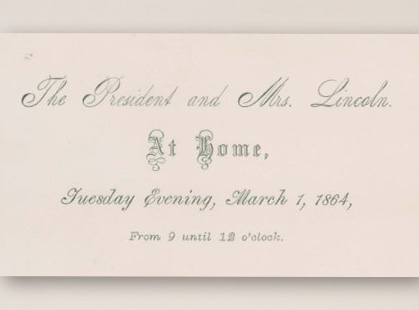
White House invitation from President Lincoln, 1864
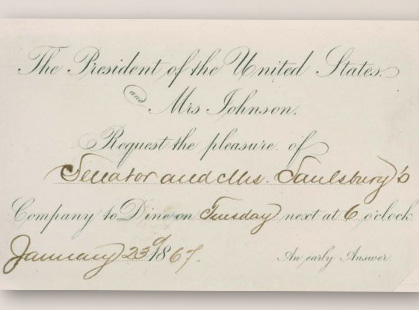
White House invitation from President Johnson, 1867
The invite from Grant may have been before he was elected President, since the invite identifies him as General Grant. Unfortunately, no year is included in the date on the invite.
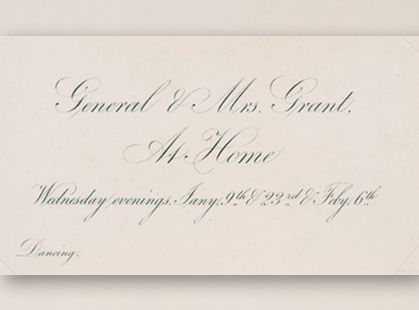
Invitation from General Grant, no year given, late 1860’s.
As noted, Saulsbury, Sr. was a Senator from 1858 to 1870, which means he served during the American Civil War (1861-1865). During such a time (and during such divisive politics) elections were scrutinized, as shown by this general missive, sent presumably to Delaware citizens after the election in 1862.
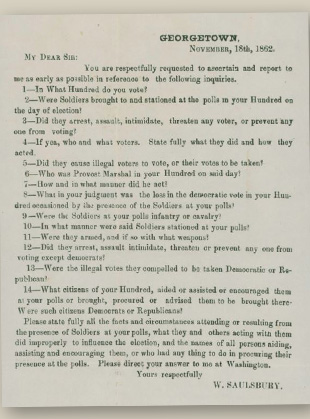
Regarding concerns of election interference, 1862
After leaving the U.S. Senate in 1870, Willard Saulsbury, Sr. became Chancellor of Delaware, from November of 1873 to April of 1892. While Chancery Courts have changed over time, they remain an appellate court. In 1880, it appears Saulsbury, Sr. presided over a case between an Isaac W. Vandegrift and George H. Hollis, wherein both the Plaintiff and Defendant were in error.

Summary of a court case which may have excluded evidence in error, which may have led to an unjust verdict.
This document provides an interesting glimpse into the legal system of the time. One cannot tell what the original case was, but this document breaks down objections that were overruled but maybe should not have been overruled, evidence that was not allowed that maybe should have been, and so on.
Check out more of the mail collection and other sub-collections in the Willard Saulsbury, Jr. collection, as well as other political papers of J. Allen Frear or the diplomatic papers of George S. Messersmith. Lastly, be sure to check back for Part 2 of this story.
